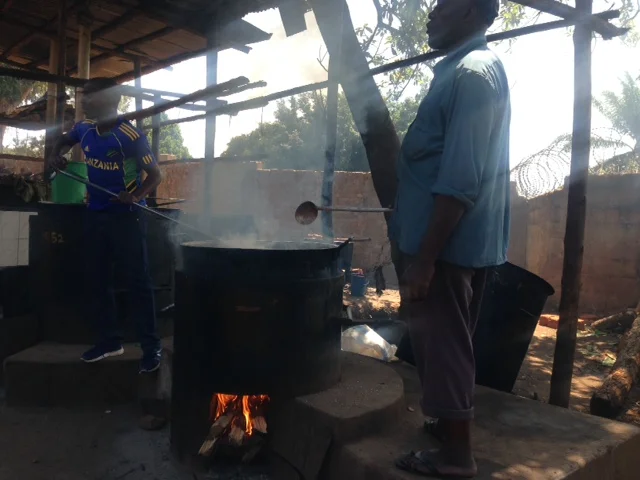Every day is a learning experience at Simoshi, especially during our filed visits and time spent in schools talking to kitchen staff and Head Masters. To date, we have included 41 schools that have moved away from the traditional 3 stone fires to cooking with institutional improved stoves.
Loads of efforts have made such behavioral change possible, and team work with the school collaboration would have never been possible. Nevertheless, the transition is not over, and to sustain such change, continuous education and monitoring is implemented from Simoshi.
Some schools have been operating their institutional improved cook stoves for over one year. As we originally partnered with schools to change their traditional cooking habits, we realised that such approach focusing on the cooking appliance alone was limited and a look at the bigger picture was needed.
Looking at the bigger picture meant that taking such holistic approach included engaging the school in changing many habits and structures in the whole kitchen environment. The different dimensions and interventions include improving the quality of firewood delivered by suppliers, improving the kitchen hygiene and sanitation practices, improving the building structure, to introducing bio-fortified micro-nutrient dense staples and high iron content beans in school meals.
As we continue to include new schools under the programme, we realised that all provide the same maize (posho) and beans meals every day of the year. Furthermore, Head Masters claim that some of their pupils attend school hungry, the school meal being the only food they get during the day.
Food insecurity, hunger and malnutrition are complex problems. In Sub-Saharan Africa alone, 214 million people are chronically hungry and child and infant malnutrition rates are among the highest in the world.
Last week we invited Harvest Plus (see picture below) to meet one of the participating schools to understand better what is currently being done in Uganda. We also had a meeting the following day with SNV Uganda, as we continue to explore further possible ways of improving food nutrition in our participating schools. We will keep you posted as we make progress in this worrying matter.







































